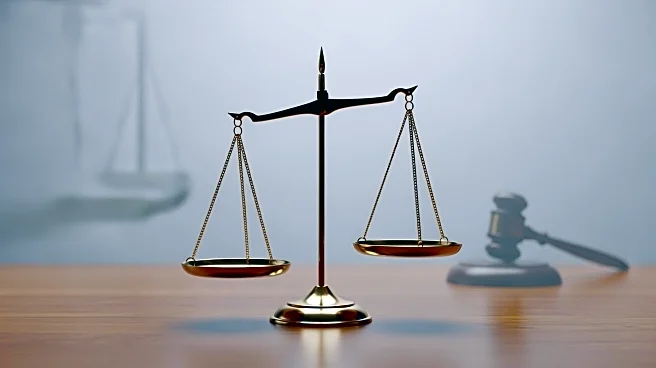What's Happening?
The Supreme Court is deliberating on whether to limit the use of race in legislative redistricting, a decision that could significantly affect the Voting Rights Act. The case involves the creation of a second
Black-majority congressional district in Louisiana, which some argue violates constitutional provisions for equal treatment. Conservative justices appear open to restricting race-based redistricting, potentially reducing minority representation in public office. The case challenges Section 2 of the Voting Rights Act, which mandates the creation of districts to ensure minority voters can elect candidates of their choice. This section has been crucial in combating discriminatory voting practices since 1965.
Why It's Important?
The potential limitation of race-based redistricting by the Supreme Court could lead to fewer minority representatives in Congress, affecting the political landscape significantly. If Section 2 of the Voting Rights Act is weakened, Republican-controlled legislatures might redraw maps to diminish minority voting power, impacting electoral outcomes. This decision could alter the balance of power in Congress, particularly in Southern states where majority-minority districts are prevalent. The case underscores ongoing tensions between ensuring fair representation and adhering to constitutional principles, with significant implications for civil rights and electoral fairness.
What's Next?
A decision from the Supreme Court is expected by June or July, which could influence the redistricting process ahead of the midterm congressional elections. If the court limits race-based redistricting, states may need to redraw electoral maps, potentially reducing the number of minority-majority districts. This could lead to legal challenges and further scrutiny of redistricting practices. Political parties and civil rights groups are likely to respond vigorously, with Democrats possibly seeking alternative strategies to maintain minority representation.
Beyond the Headlines
The debate over race-based redistricting raises broader questions about racial equality and representation in the U.S. legal system. Limiting Section 2 could exacerbate racial disparities in political representation, challenging the progress made since the civil rights era. The case highlights the complex interplay between race, law, and politics, with potential long-term effects on how minority communities engage with the electoral process.










